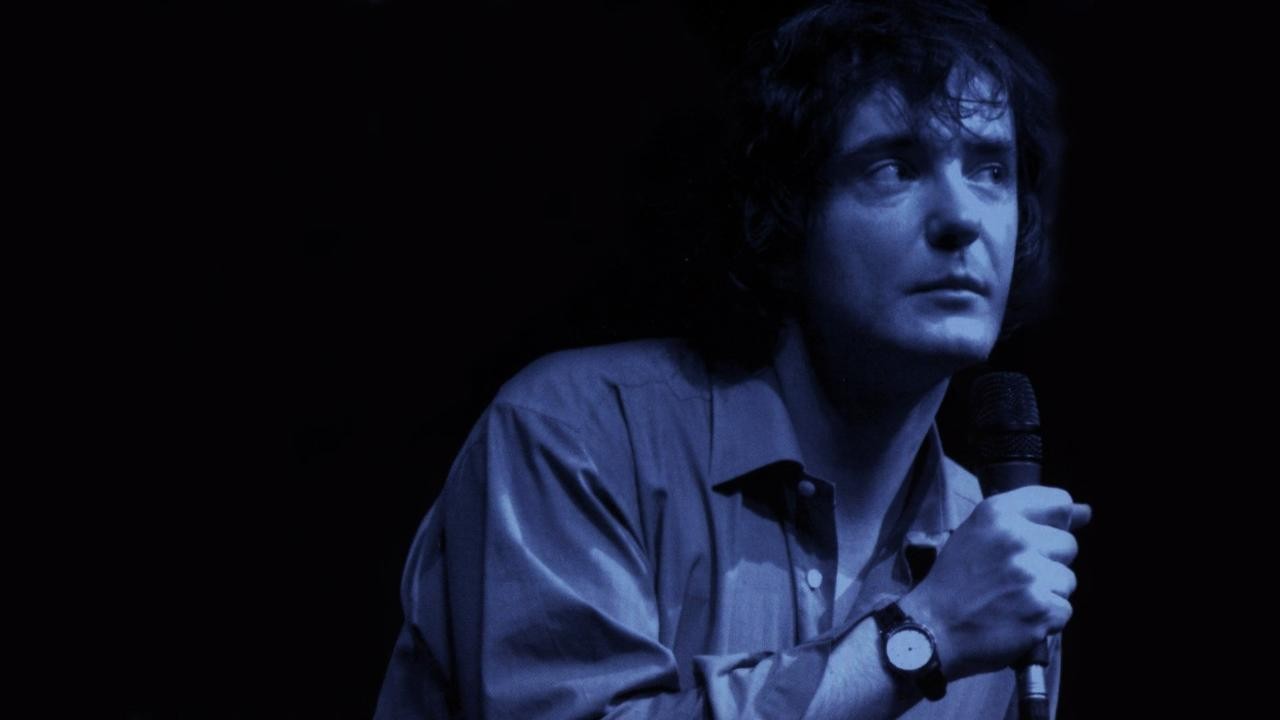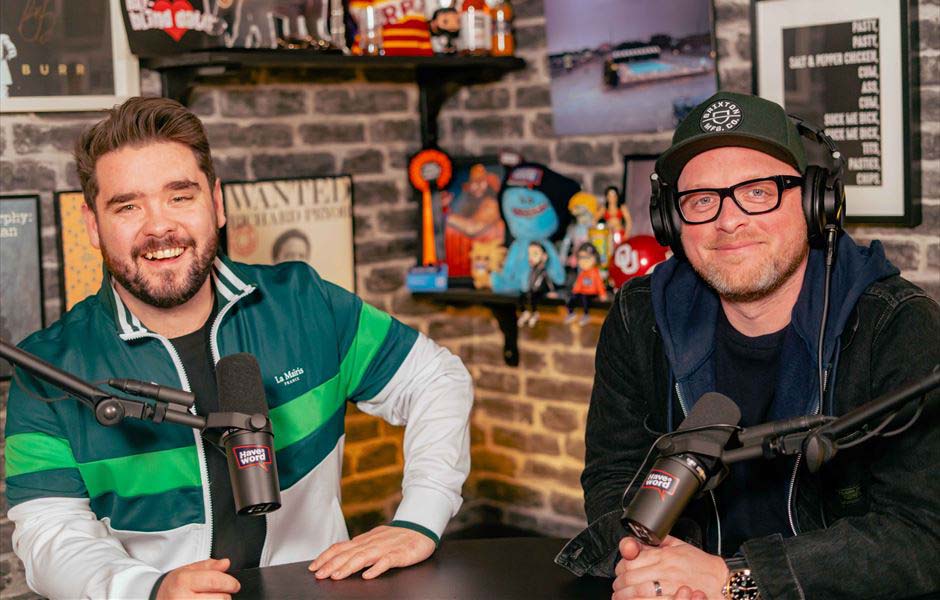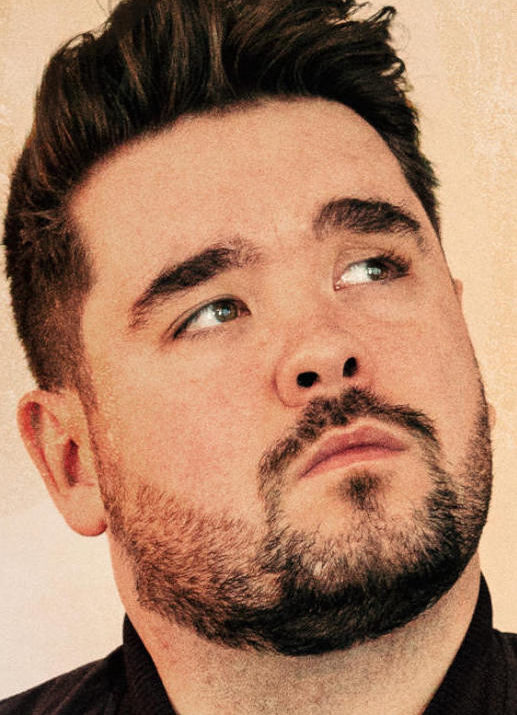- Culture
- 15 Nov 23

Ahead of his upcoming Irish dates, Liverpool stand-up Adam Rowe shares his thoughts on the changing face of comedy in 2023 – touching on representation, 'clip culture', and "pushing it a little bit too far..."
Between stand-up tours, festivals, podcasts, hour-long specials on streaming platforms, and short social media clips, our infatuation with comedy, and the people who deliver it, has only grown stronger in recent years.
At the same time, of course, comedy has also been dealing with some weighty existential crises – spanning topics like political correctness, accountability, diversity, and online engagement.
Liverpool comedian Adam Rowe’s rise to prominence has largely occurred while these debates were already underway – and his success offers some notable insights into what’s changing, and what’s remained constant, in the world of comedy.
In recent years, Adam has established himself as one of the UK’s most buzzed-about comics – performing, in his laidback yet brutally honest trademark style, at major comedy clubs and festivals around the world. Following 20 sold-out shows at the Edinburgh Fringe, he’s set to bring his brand new stand-up show, What’s Wrong With Me?, to Ireland in January.
His initial connection to comedy came through his TV at home – and watching videos of stand-up shows like Dylan Moran’s 2004 Monster, recorded live at Vicar Street.
Advertisement

Dylan Moran: Monster (2004)
“I watched a lot of stand-up with my mum,” he tells me. “After my mum and dad split up, her thing was comedy. So whenever my little brother went to bed, I’d be allowed to go back downstairs and watch the telly with her – and she’d normally be watching stand-up.
“The first thing I remember watching was Richard Pyror’s show,” he continues. “I’d never seen my mum laugh like that. Then I found Dylan Moran and Tommy Tiernan. That’s definitely had an influence on me.”
But in addition to putting in the hours on stage himself, Adam’s success also has a lot to do with his online presence – through both his work as co-host of the hugely popular Have A Word podcast, and his own content on social media.
A BIG WHATSAPP GROUP
“There’s been a lot of discussions among comedians about this recently – about this ‘clip culture’,” he reflects. “It’s that idea of getting clips out everyday, constantly. But people are looking at it the wrong way. It’s not that you have to have a clip out everyday. It should be looked at as, ‘If you want, you can put a clip out everyday’.
Advertisement
“Everyone thinks it’s this race to find a fanbase, and you’ve got to do it within a year, or you’re not going to have one,” he adds. “I’ve been doing comedy for nearly 13 years, and it’s only in the past three that I’ve found what worked.
“The internet hasn’t made it hard for comedians – it’s made it much easier. There’s ways around the gatekeepers now.”
And, in Adam’s experience, loyal online fanbases feed directly into real-world ticket sales – for both his live podcast shows, and his stand-up.
“Last year, I did 75 dates with no help from a promoter,” he says. “That wasn’t possible 20 years ago. But I was putting content on my social media, and the podcast was putting content out – and that helped me promote the tour. All but one date sold-out – and the Isle of Man can go fuck itself!”
He points out that “there’s no shortcut”, and “if you want to be a stand-up comedian, you’ve got to go and do stand-up.”
“You can do a million videos, go viral a million times, and have a million followers,” he says. “But if you go on stage and you haven’t put the work in to be good at stand-up, you’re going to have a really bad time.”
Like many other young comics, including Jerrod Carmichael and Bo Burnham, Adam has been leaning into a much more introspective form of comedy – as he showcased with his surprisingly vulnerable Juicy special, released on YouTube earlier this year.
Advertisement
As the title suggests, he’s also looking inwards on his new What’s Wrong With Me? Tour – covering everything from intrusive thoughts, to health anxiety.
“I’ve always used comedy as a therapy,” he reveals. “If you can laugh at trauma, it’s not traumatic anymore. That’s a very working class outlook.”
But he revels in his ability to tell jokes that “are bang out of order” on Have A Word – which remains an independent podcast.
“We joke about everything and anything, and some of the funniest moments are when we’re just pushing it a little bit too far,” he tells me. “But we’ve developed a relationship with our listeners where they know we’re not bad people. They know we’re not serious in what we’re saying. There’s things that you wouldn’t tweet, that you would say in your WhatsApp groups. I like to think of Have A Word as a big WhatsApp group.”
It’s that authenticity that Adam reckons the fanbase are connecting to most.
“We’re catering to an audience that TV and mainstream comedy has left behind,” he claims. “You’re not being awful, you’re just being a bit naughty, and over the line. You’re saying things that you’d say in the pub. The mainstream has become so safe that people are now making themselves laugh in the pub more than TV comedy can.
Advertisement
“When comedians start doing that WhatsApp group and pub comedy, at a professional level, it shines and stands out much more than anything else can,” he continues. “It’s for that market that the mainstream isn’t giving anything to – and it’s a big market.”

Have A Word
WORKING-CLASS VOICES
That said, he recognises that it’s never been easier for someone to upload a comedian’s words to social media out of context.
“As a comedian, I don’t think you can worry about that,” he argues. “I have this debate with other comics all the time, about the era we’re living in – where people go after comics for making jokes that they don’t like.
“That’s never going to stop,” he continues. “You can’t stop people saying, ‘Hey, I don’t like this, and other people shouldn’t like it’. As a comic, you either ignore it, or sometimes, listen to it. Sometimes you’ll say something, and someone will go, ‘Here’s why I didn’t like it…’ And it is okay as a comedian to go, ‘Yeah, that was probably a bit much.’ It doesn’t necessarily mean you have to be like, ‘I should never have said that!’ But you can understand why someone didn’t like something. That can be okay."
Advertisement
While he stresses the importance of diversity and representation in comedy, particularly on TV, he feels that the issue needs to be addressed in a bigger way.
“The diversity in front of the camera is irrelevant when diversity behind the camera doesn’t exist,” he says. “That’s not talked about enough. When everyone behind the camera is a white, middle-class, English posh boy, whose dad owns the production company, the show is going to represent those people, more than anything else. Diversity should extend to giving opportunities to working-class voices.
“It’s important to see yourself represented, so you can go, ‘Oh, that’s a possibility for me’,” he reflects. “I would never have gone onstage if I hadn’t seen comics like Kevin Bridges and Jason Manford. But if you’re saying ‘Looking at how diverse our TV show is’ – and everyone on it went to the same school, and the same university – that’s not diversity.”
• Adam’s What’s Wrong With Me? tour visits Lime Tree Theatre, Limerick (January 23); Cork Opera House (24); Black Box, Galway (25); Millennium Forum, Derry (26); and 3Olympia Theatre, Dublin (27)











